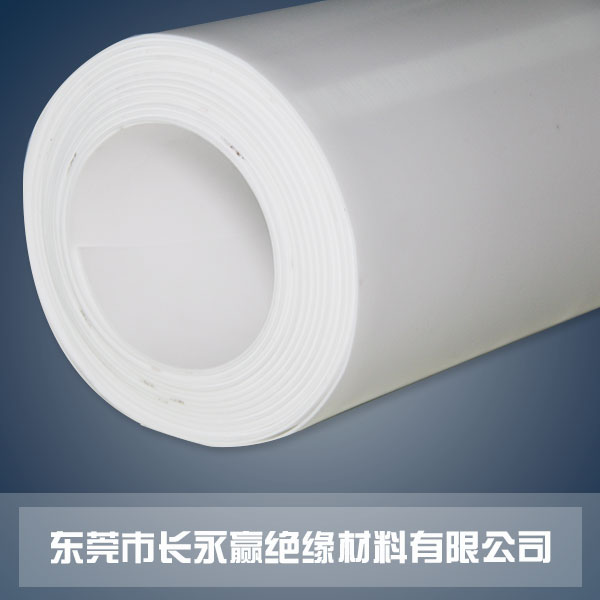
Teflon
Teflon is the Chinese name of polytetrafluoroethylene film. Its other names are: PTFE, Teflon, teflon, Teflon, 4F, the king of plastics. Of course, polytetrafluoroethylene is called the "king of plastics". Roy Planct, the father of fluororesin, began to study substitutes for freon at DuPont Company in the United States in 1936. They collected some tetrafluoroethylene and stored it in steel bottles for the next day's next experiment, however, there was no gas overflow. They thought it was a gas leak, but when they weighed the cylinder, they found that the cylinder did not lose weight. They sawed through the cylinder and found a large amount of white powder, which was Teflon.
They found that PTFE has excellent properties and can be used for anti-melting sealing gaskets for atomic bombs and artillery shells, so the US military kept the technology secret during World War II. It was not until the end of World War II that it was declassified and industrialized production of PTFE was achieved in 1946.
Chinese trade name "Teflon" (teflon), "Teflon", "Teflon", "Teflon" and so on. It is a polymer compound formed by polymerization of tetrafluoroethylene. Its structure is-[-CF2-CF2-]n-. It has excellent chemical stability and corrosion resistance. It is one of the best materials for corrosion resistance in the world today. Except for molten alkali metal, chlorine trifluoride, 5 chlorine fluoride and liquid fluorine, it can withstand all other chemicals and does not change when boiled in aqua regia [6], it is widely used in all kinds of occasions that need to resist acid and alkali and organic solvents. Sealing, high lubrication non-stick, electrical insulation and good anti-aging ability, excellent temperature resistance (can be in the positive 250 ℃ to negative 180 ℃ temperature for a long time). Teflon itself is not toxic to humans.
The use temperature is -190~250 ℃, allowing quenching and quenching, or alternating hot and cold operation.
Pressure -0.1~6.4Mpa (full vacuum to 64kgf/cm2)
It has solved many problems in chemical, petroleum, pharmaceutical and other fields. PTFE seals, gaskets, gaskets. PTFE seals, gaskets, sealing gaskets are made of suspension polymerization PTFE resin molding. Compared with other plastics, PTFE has the characteristics of chemical resistance, it has been widely used as a sealing material and filling material.
The dispersion can be used as an insulating immersion liquid for various materials and as an anti-corrosion coating on the surface of metal, glass and pottery. All kinds of PTFE ring, PTFE gasket, PTFE packing, etc. are widely used in all kinds of anti-corrosion pipeline flange sealing. In addition, it can also be used for drawing silk, polytetrafluoroethylene fiber-fluoron (foreign trade name is Teflon).
Nowadays, all kinds of plastic king products have played a pivotal role in the national economy such as chemical industry, machinery, electronics, electrical appliances, military industry, aerospace, environmental protection and bridges.
The use conditions of polytetrafluoroethylene (PTFE) industry chemical, petrochemical, oil refining, chlor-alkali, acid, phosphate fertilizer, pharmaceutical, pesticide, chemical fiber, dyeing, coking, gas, organic synthesis, non-ferrous smelting, iron and steel, atomic energy and polymer filtration materials, high-purity product production (such as ion membrane electrolysis), viscous material transportation and operation, food, beverage and other processing and production departments with highly strict hygiene requirements.
Teflon
High temperature resistance-the use of working temperature of 250 ℃.
Low temperature resistance-has good mechanical toughness; even if the temperature drops to -196 ℃, it can maintain 5% elongation.
Corrosion resistance-for most chemicals and solvents, showing inert, strong acid and alkali, water and various organic solvents.
Teflon tube
Teflon tube
Weather-resistant-has the best aging life in plastics.
High lubrication-is the lowest coefficient of friction in solid materials.
Non-adhesion-is the smallest surface tension in a solid material and does not adhere to any substance.
Non-toxic-physiologically inert, as a long-term implantation of artificial blood vessels and organs without adverse reactions.
Electrical insulation-can resist 1500 volts high voltage.



 Dongguan Changyongying Insulation Material Co., LTD
Dongguan Changyongying Insulation Material Co., LTD Mobile phone mobile terminal
Mobile phone mobile terminal Add two-dimensional code
Add two-dimensional code

